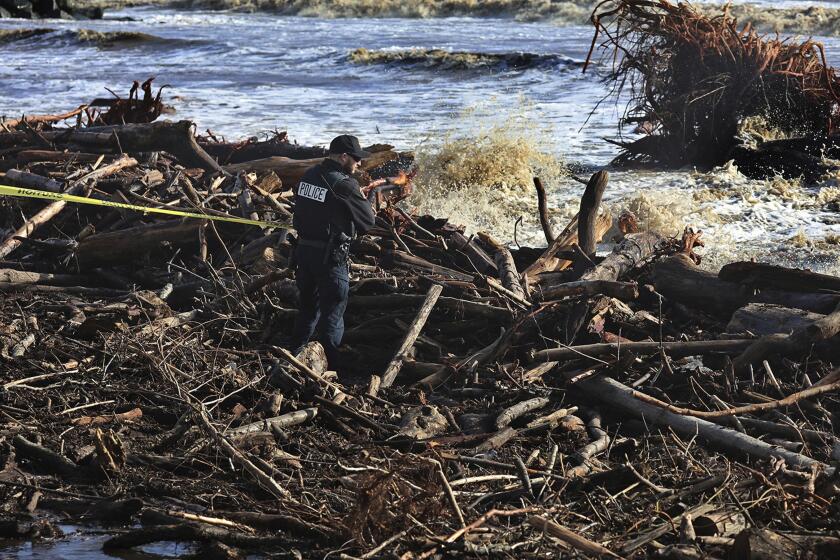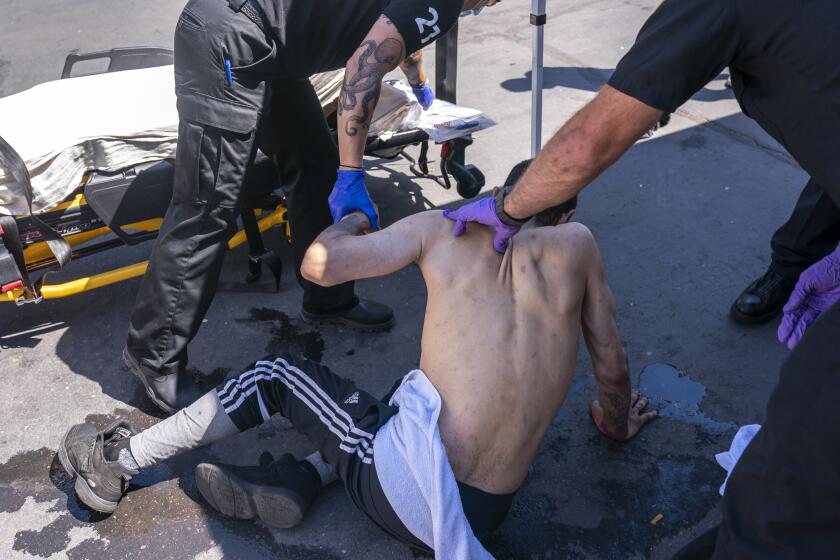Powerful storms and tornadoes slam the South, killing at least 7 people
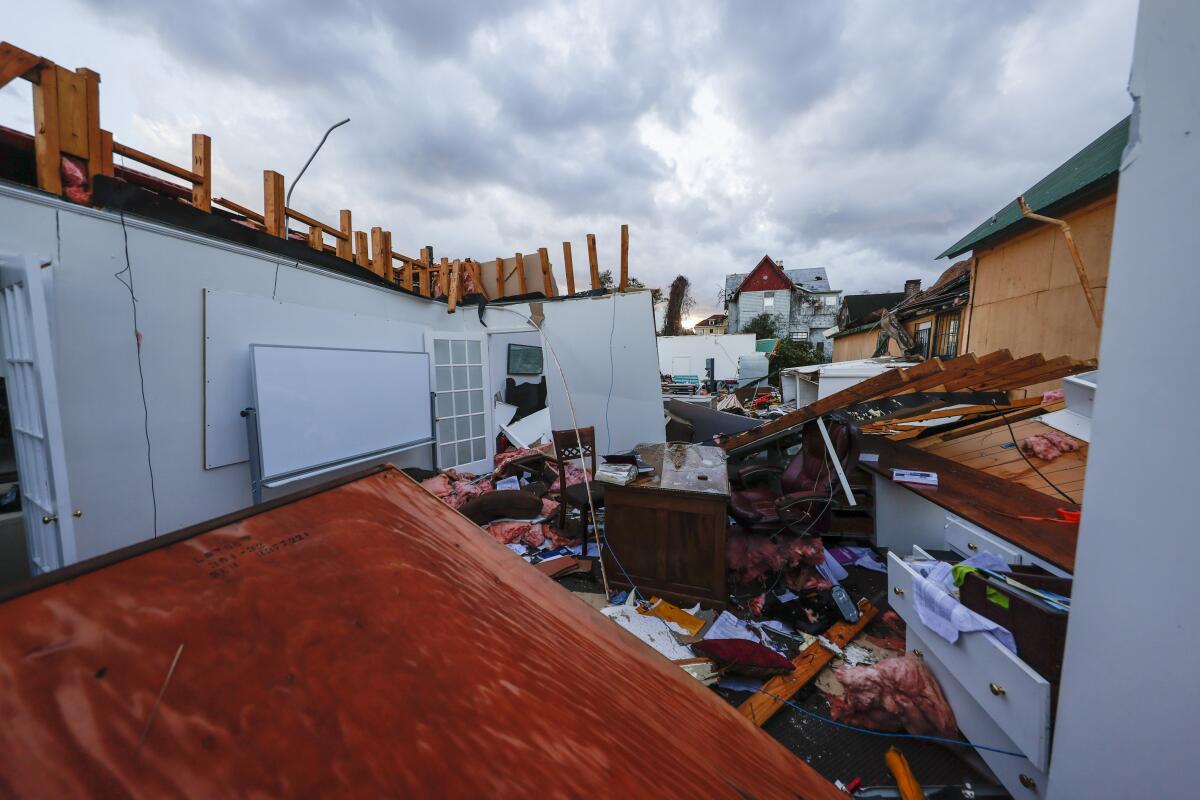
- Share via
SELMA, Ala. — A giant, swirling storm system billowing across the South on Thursday killed at least six people in central Alabama, where a tornado ripped roofs off homes and uprooted trees in historic Selma, while another person was killed in Georgia, where severe winds knocked out power to tens of thousands of people.
In Autauga County, Ala., just east of Selma, at least six people were killed and about 40 homes were damaged by a tornado that cut a 20-mile path across two rural communities, said Ernie Baggett, the county’s emergency management director.
Several mobile homes were launched into the air and at least 12 people were injured severely enough to be taken to hospitals by emergency responders, Baggett said. He said crews were focused Thursday night on cutting through downed trees to look for people who may need help.
“This is the worst that I’ve seen here in this county,” Baggett said.
In Georgia, a passenger died when a tree fell on a vehicle in Jackson during the storm, Butts County Coroner Lacey Prue said. In the same county, southeast of Atlanta, the storm appeared to have knocked a freight train off its tracks, officials said.
Nationwide, there were 33 tornado reports from the National Weather Service as of Thursday night, with a few warnings still in effect in Georgia, South Carolina and North Carolina. The reports were not yet confirmed and some could later be classified as wind damage after assessments in coming days.
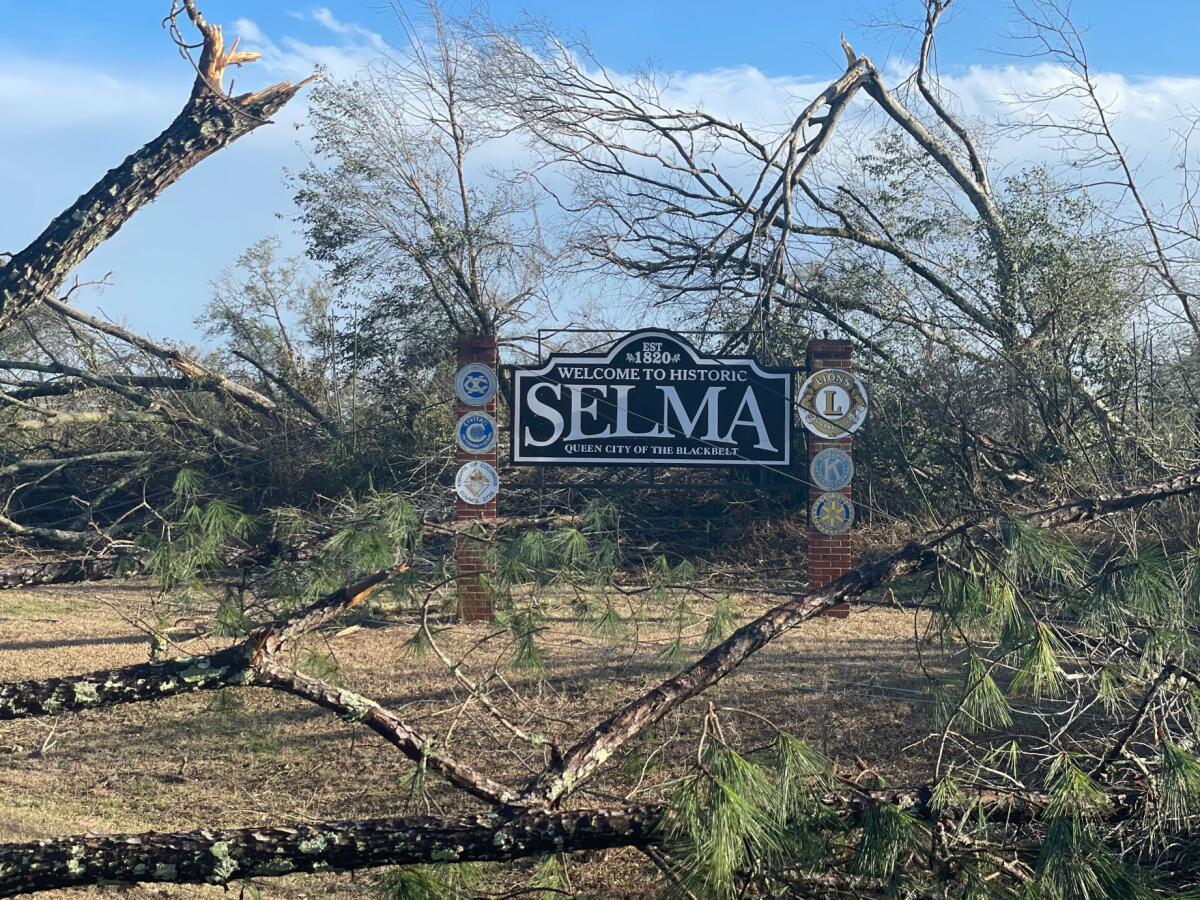
In Selma, a city etched in the history of the civil rights movement, brick buildings collapsed, cars were on their sides and traffic poles were strewn about in the downtown area.
A few blocks past the Edmund Pettus Bridge, an enduring symbol of the voting rights movement, buildings were crumpled and trees blocked roadways.
Selma Mayor James Perkins said no fatalities had been reported, but several people were seriously injured. First responders are continuing to assess the damage, and officials hoped to get an aerial view of the city Friday morning.
“We have a lot of downed power lines. There is a lot of danger on the streets,” Perkins said.
With widespread power outages, the Selma City Council held a meeting on the sidewalk, using lights from cellphones, to declare a state of emergency. A high school was opened as a shelter, officials said.
Mattie Moore was among Selma residents who picked up boxed meals offered by a charity downtown.
“It’s like something you see on TV,” Moore said of the destruction.
Residents on California’s Monterey Peninsula and in the Salinas area were told to prepare to be cut off for two to three days due to flooding.
Selma, a city of about 18,000 residents, is about 40 miles west of Alabama’s capital, Montgomery. The city was a tinderbox of the civil rights movement. Alabama state troopers violently attacked Black people advocating for voting rights as they marched across the Edmund Pettus Bridge on March 7, 1965. Among those beaten by law enforcement officers was future civil rights icon and congressman John Lewis, whose skull was fractured.
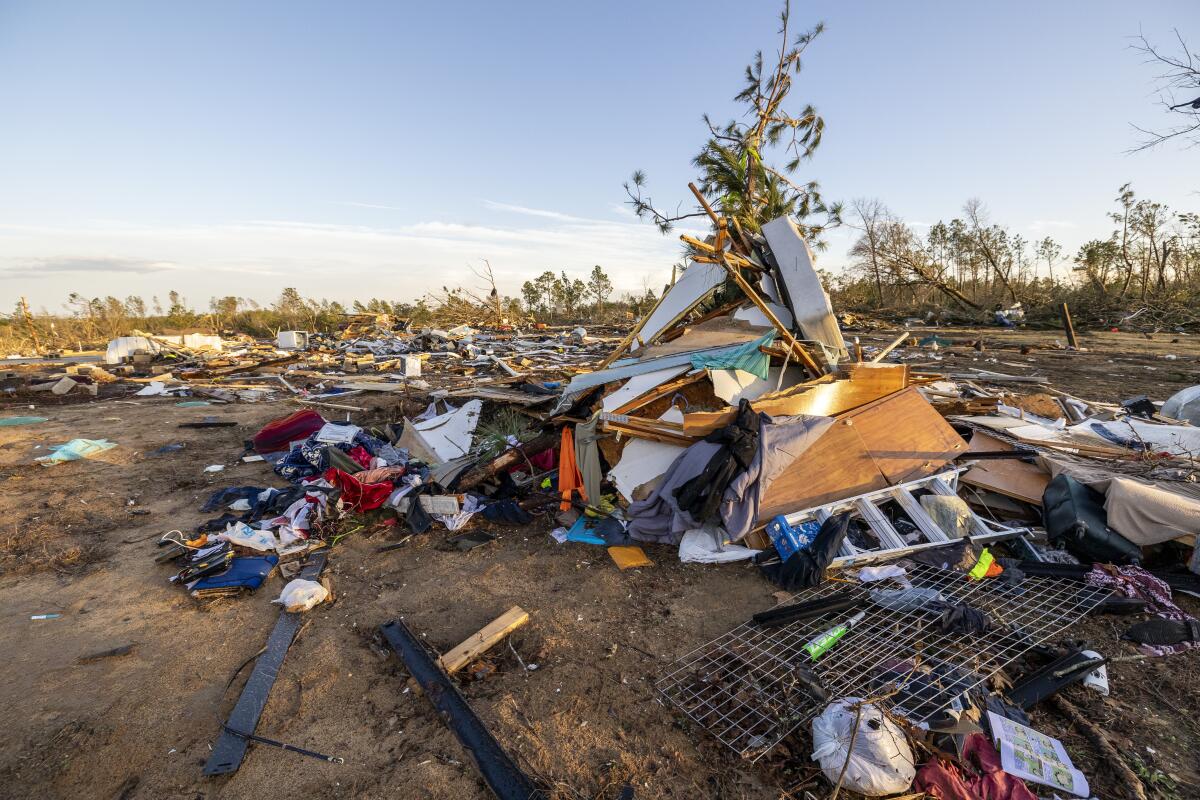
After the tornado passed, Krishun Moore emerged from her home to the sound of children crying and screaming. She and her mother encouraged the kids to keep screaming until they found the two of them on top of the roof of a damaged apartment. She estimated the kids were about 1 and 4. Both are OK, she said on Facebook messenger.
Malesha McVay drove parallel to the tornado with her family. She said it got less than a mile from her home before suddenly turning. “We stopped and we prayed. We followed it and prayed,” she said.
She took video of the giant twister. “It would hit a house and black smoke would swirl up,” she said. “It was very terrifying.”
Tornado warnings were issued Thursday in Alabama, Mississippi and Tennessee as the storm system moved through.
About 40,000 customers were without power in Alabama on Thursday night, according to PowerOutage.us, which tracks outages nationwide. In Georgia, about 86,000 customers were without electricity after the storm system carved a path across counties south of Atlanta. The storm caused damage to buildings and cars south and west of the city, local news outlets reported.
In Kentucky, the National Weather Service in Louisville confirmed that an EF-1 tornado struck Mercer County and said crews were surveying damage in other counties.
Extreme heat waves such as the one that hit the Pacific Northwest last year may be 20 times more likely to occur if carbon emissions are not reduced.
Three factors — a natural La Niña weather cycle, warming of the Gulf of Mexico likely related to climate change, and a decades-long shift of tornadoes from the west to east — came together to make Thursday’s tornado outbreak unusual and damaging, said Victor Gensini, a meteorology professor at Northern Illinois University who studies tornado trends.
La Niña, a cooling of parts of the Pacific that changes weather worldwide, was a factor in making a wavy jetstream that brought a cold front through, Gensini said. But that’s not enough for a tornado outbreak. What’s needed is moisture.
Normally the air in the Southeast is fairly dry this time of year, but the dew point was twice what is normal, probably because of unusually warm water in the Gulf of Mexico, which is likely influenced by climate change. That moisture hit the cold front and everything was in place, Gensini said.
More to Read
Sign up for Essential California
The most important California stories and recommendations in your inbox every morning.
You may occasionally receive promotional content from the Los Angeles Times.
